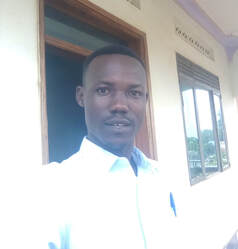 Isaac Cosmas Isaac Cosmas In this episode of Finding the Helpers, we had the pleasure of speaking with Isaac Cosmas, a South Sudanese refugee who Playing to Live met while conducting a mental health needs assessment in Rhino camp, a refugee settlement in Uganda. Isaac was there as both a refugee and working as part of the frontline staff providing supporting the mental health needs of other refugees. In his interview, Isaac shares with us his story of struggle, resilience, and brings to light the hardships facing refugees during a global pandemic. Isaac was born during the second Sudanese civil war which had broken out in the early 1980s. This conflict lasted for almost two decades and was based in the same cultural, religious, and language differences of previous conflicts between Sudan and South Sudan. Due to this conflict, Isaac spent the first portion of his life within the same village he was born in. Isaac described always being driven toward education. That learning was a top priority for him, but that in his village school did not go beyond primary school and most of his teachers had not completed anything beyond primary school themselves. He says, “We never had any hope for progressing in education, or getting exposed to the world, or associating with people of different cultures because we never had the chance of interaction. The village that I was living in was the whole world that I knew.” It wasn't until The Comprehensive Peace Agreement was signed in 2005 that he got the chance to venture beyond the borders of his village. The South Sudanese could finally travel, obtain education, and meet new people outside of their villages. Isaac seized that opportunity to move to Uganda where he began pursuing higher education, eventually receiving a diploma in Religious studies. Once he obtained this degree, Isaac was able to created a livelihood for himself and his family in South Sudan. He describes himself as a "dibiti parent," a term they jokingly use in his country for first borns who are the first to leave their villages and obtain education. He explains that in such a conflict-ridden country, all their parents lived during war and crisis and have no savings or means to provide for their children. So it becomes the responsibility of the first born to provide food, clothing, pay for education, and even provide parental guidance. He provided these things for 12 family members by working in development and farming. He describes this period as a time when they finally had hope that the conflict would be over. They had hope for a future without suffering. Unfortunately, however, another conflict broke out in 2013, and again in 2015. In this conflict, paranoia from the government that Isaac was feeding rebels with his produce, and a similar distrust from the rebels, lead to his produce being confiscated, leaving him with no income. As a result, Isaac had no choice but to move his entire family to the refugee settlement in Uganda. Of about 1.4 million refugees in Ugandan settlements total, about 848,000 are South Sudanese. Isaac describes the uphill battle the South Sudanese face when arriving in Uganda as a result of not being as exposed to the world and to education as Ugandan people. He says he brought one idea with him to the settlement, “We have to beat all odds. We have to continue beating the odds. The benefits of life that come easily, we have to get to the hard way. We have to turn it around to make it succeed." Isaac did beat those odds, and was the first South Sudanese person in Rhino Camp to obtain a higher professional status when he began working for the Danish Refugee Council. He worked to reduce vulnerabilities facing adolescent refugees, and eventually helped to some of his fellow South Sudanese get jobs. He was working and earning a salary, but still faced difficulties, “While trying to solve other people’s problems, we have our own to solve for ourselves." He explained that as refugees themselves, most of the front line staff had their own families living in the settlement and had also lost their property, livelihood and often family members in the conflict that led them to flee. Additionally, his salary allowed him to take care of his family, but because he had always grown up surrounded by his community, also left him feeling guilty, “I feel bad that I can buy things, like meat, that other people cannot afford. My neighbor cannot afford these things, and this is what many refugee frontline staff face.” The pandemic has made things even more difficult for refugees. Refugees rely almost 100% on humanitarian assistance, and with many donor organizations having to focus their funding on their own countries dealing with COVID-19, they can no longer count on this relief in refugee camps. In April there was a major food rations cut, and in total about 30% of donor funds have been suspended. Isaac explains that to obtain necessarily survival essential, refugees also rely on trade. On walking around the settlements and interacting with one another, which has all been halted due to the lockdown. Furthermore, refugees do not have access to reliable enough internet access to receive updated news around COVID-19 and with many organizational standards lowered due to lack of funding, the staff who used to come in with that information no longer has access to it either. Isaac spoke extensively about the front line staff in these settlements. There is almost no mental health support for frontline staff in Rhino Camp and on top of trying to support the other inhabitants they are also now often isolated from their own families due to lockdowns and travel restrictions. Isaac himself is currently stuck in South Sudan and has no idea when he will be able to return to Uganda to be reunited with his family. He shared that he was present to see his daughter's birth in December but has not seen her since. Aside from all the aforementioned added stressors of this pandemic, Isaac explained that his country and those like it often take cues of what to do in global crisis from Western culture. He says, however, that in a country torn apart by war where most citizens are starving or at risk of severe malnutrition, the approach of shutting down the economy, like we originally did in the United States and Europe, will not work. “People are facing the choice of “die of hunger or die of COVID-19”. Highlighting the need to customize how we approach crises in each country, especially those that are not represented well in global decision making. Isaac says despite knowing and seeing that the strain related to COVID is continually getting worse, he reports that there is little to no access to testing so it is unclear how much the virus has actually spread. He shared that the hospitals are over capacity, and the shocking fact that South Sudan only has 4 ventilators in the whole country. 4 ventilators in a country of almost 11 million people. Additionally, there is little personal protective equipment available to any of the medical staff. Even without a pandemic, in addition to an already weak medical infrastructure, civil servants, nurses, and midwives do not make enough in a month to buy even 100 kgs of rice. Their payments are also often delayed up to three months at a time, resulting in significant stress beyond the virus. And due to a lack of cohesive communication by leaders, many South Sudanese are not adhering to the guidelines set forth which in turn will put even more pressure on this health care system and it’s workers. In the face of all of this, Isaac and his community are still pushing through. “We still have the hope. And we’re not losing the effort. But I’m quite sure that after this pandemic people will face more serious mental health issues than food and clothes. And it might even kill more people than what COVID-19 is killing.” Self-care activities
Peer Support: Alongside the need for food, shelter, access to healthcare, and other important basic needs, mental health and self care are essential. It should not be seen as an addition or as something to prioritize after basic needs are met. It is important to weave mental health and psychosocial support throughout. Isaac says himself that the mental health repercussions of this crisis in his country will lead to even further deaths during and after. If the frontline staff aren't receiving the quality of care they need for their own mental health, the quality of the programs they are supporting will be severely diminished. In the western world, when we talk about mental health our reference is very typically referring to individual and group counseling with a trained therapist, self care regimens like taking a bath or going for a run, and so on, but in humanitarian settings like the refugee settlements in Uganda and countries like South Sudan, access to professional care is limited at best and self care regimens, as we might think of them, can feel and be unattainable. One of the biggest suggestions Playing to Live made in the assessment done in 2017, aside from organizations investing in more support for their staff, was building upon peer support. Identify one or a few people who are either within your geographical area or accessible by phone who you know will be available for you when you need someone to confide in. Partner with that person where you both check in on each other, pray together if you’re religious or spiritual, and work to make yourselves available when one of you is feeling anxious, depressed, and lonely. The healing effects of social peer support are immense. There are so many frontline staff and individuals living in crisis who in their stories credit one or two people with having kept them alive. You aren't in this alone. Resources: For information about the food shortage the refugees are facing as a result of the pandemic: https://www.theguardian.com/global-development/2020/apr/14/food-rations-to-14-million-refugees-cut-in-uganda-due-to-funding-shortfall-coronavirus-world-food-programme For information about the stigma and lack of funding for mental health care in South Sudan: https://www.aljazeera.com/indepth/features/south-sudan-stigma-underfunding-plague-mental-health-care-190117180739562.html For information about how South Sudan is not only being fled by South Sudanese refugees, but is also receiving refugees from the Democratic Republic of Congo and what is being done to control the spread of this virus in the face of this: https://radiotamazuj.org/en/news/article/over-200-refugees-from-drc-cross-into-south-sudan A document provided by Isaac with several links to the conflict and dangers these communities already face outside of COVID-19: https://drive.google.com/file/d/12x32FdX6PEjm_udRm4Rj62koYcok8ofn/view?usp=sharing An Introduction to Isaac’s non-profit Vision Empowerment for Development Organization (VEDO) https://drive.google.com/file/d/1C2ETTopMGwszslS-EetK3oZM1kXw1KHX/view?usp=sharing Thank you for your continued support. You can find the full episode here, and resources on the situation in South Sudan down below. Lastly, please reach out at info@playingtolive.org if you have ideas for future podcasts. Stay safe out there.
0 Comments
Leave a Reply. |
AboutIn Season 1 of Finding the Helpers, we are bringing personal stories of front line staff and families impacted by COVID-19. Our diverse guests will be invited to share their story of being on the front line, and in combination to their story, two expressive art therapists will provide art and creative activities that will support the challenges the individual and their family is facing. These could include ideas for short relaxation techniques to be done on the front line, creative ways to explain in kid friendly terms what is happening, ways to stay connected to family and children during long periods of isolation, etc. Throughout the podcast, conversation will include mental health insight related to the pandemic, anxiety and stress, grief and loss, resiliency, coping skills, and understanding the pandemic. Presented by the nonprofit Playing to Live's, whose history began in 2014 as a grassroots program focused on bringing play and creativity in the midst of the Ebola deadly viruses. Following our work in Ebola, we have continued our work as advocates and creators for play and expression across the globe in refugee settings, post war countries, and in the United States of America.
AuthorLindsay Bingaman is the Regional Program Manager for Playing to Live, based in Nairobi, Kenya. Archives |
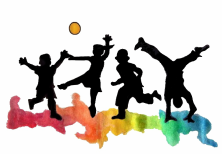
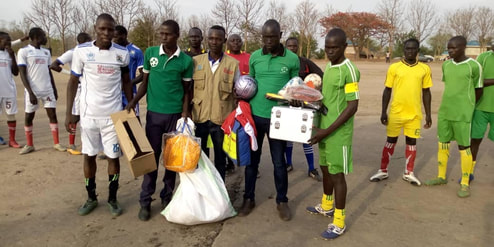
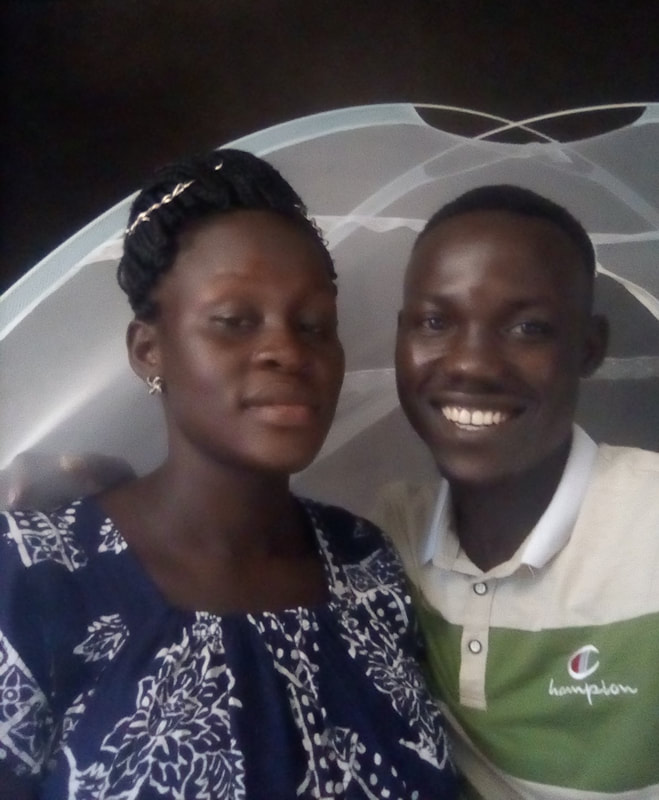
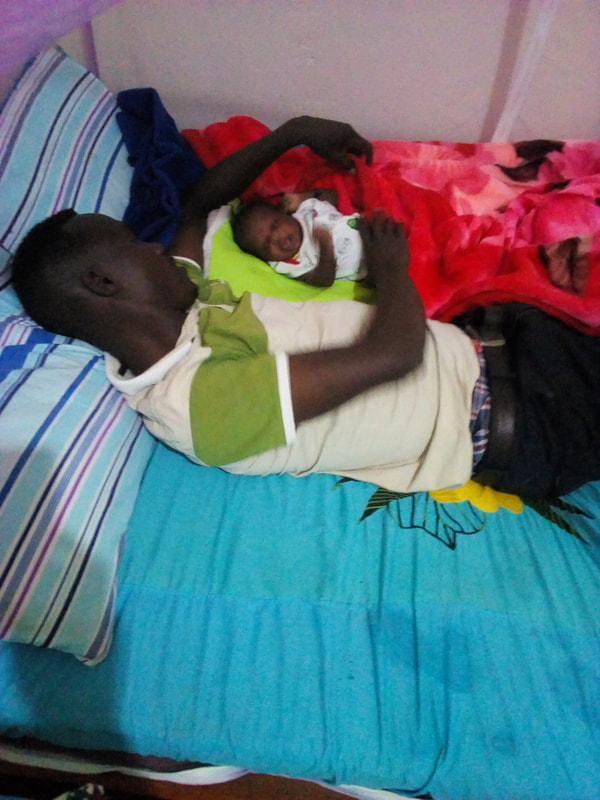
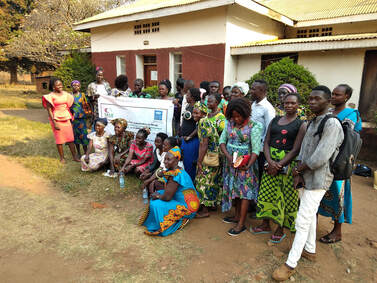
 RSS Feed
RSS Feed